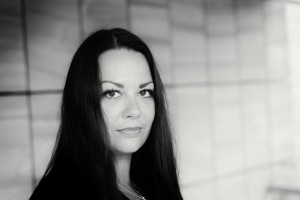The Role of an Accompanying Pianist in a Soloist’s Art: Physiological and Psychological Aspects
Doctoral student: Indrė Baikštytė
Supervisors: Prof. Irena Uss-Armonienė, Assoc. Prof. Dr. Audra Versekėnaitė
Research consultant: Prof. Habil. Dr. Alvydas Juocevičius
Department: Accompanying Piano
Duration: 2014–2015
(artistic doctorate studies for art licentiates)
Abstract
The aim of this artistic research project is to prove, through a demonstration of the multifaceted polyfunctionality of an accompanying pianist, that it is essential for a pianist to have psychological and psycho-physiological knowledge which has a considerable impact on the outcomes of a soloist’s artistic activity.
The research paper analyses and compares the characteristics of the artistic activity of soloists from different fields of performance art (singing, strings and wind instruments). A significant focus is put on the psychological aspects of the interaction between a soloist and an accompanying pianist, the importance of temperaments is explored. The author also looks into the physiological response of soloists at rest and under stress.
The novelty and relevance of the subject of this artistic research lie in the fact that research into the artistic collaboration between soloists and accompanying pianists from the psychological and psycho-physiological points of view has just started in Lithuania and has been very scarce. The conclusions from the present research will support the empirical assumptions on the importance of a pianist’s role in a soloist’s creative activity and will help to come up with specific recommendations for accompanying pianists when it comes to general psychological knowledge concerning the co-operation between a soloist and a pianist and specific physiological knowledge related to the needs of a specific soloist – singer or instrumentalist.
The creative part of the artistic project focuses on the preparation of concert programmes with soloists of different specialities. To look more closely into the specific nature of this artistic doctorate research, programmes have been developed both with vocalists and with string and woodwind performers: they are being observed, their state and needs are being tested during rehearsals, recordings and public performances.


